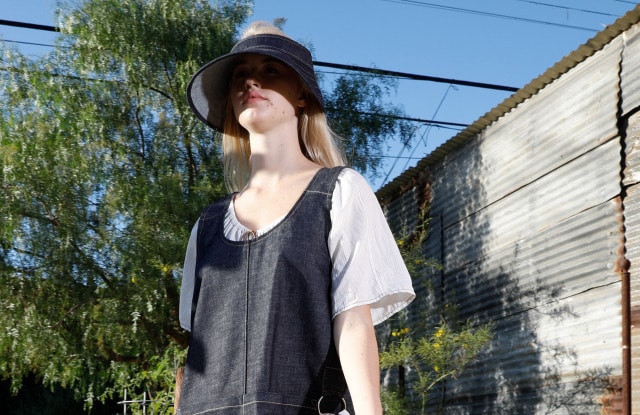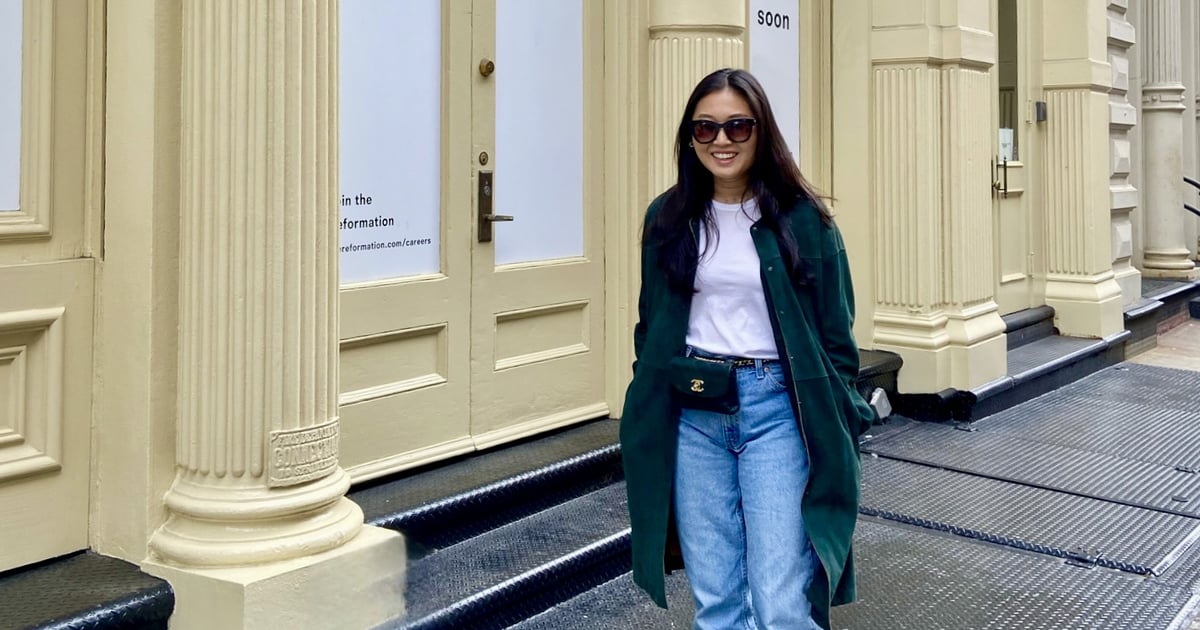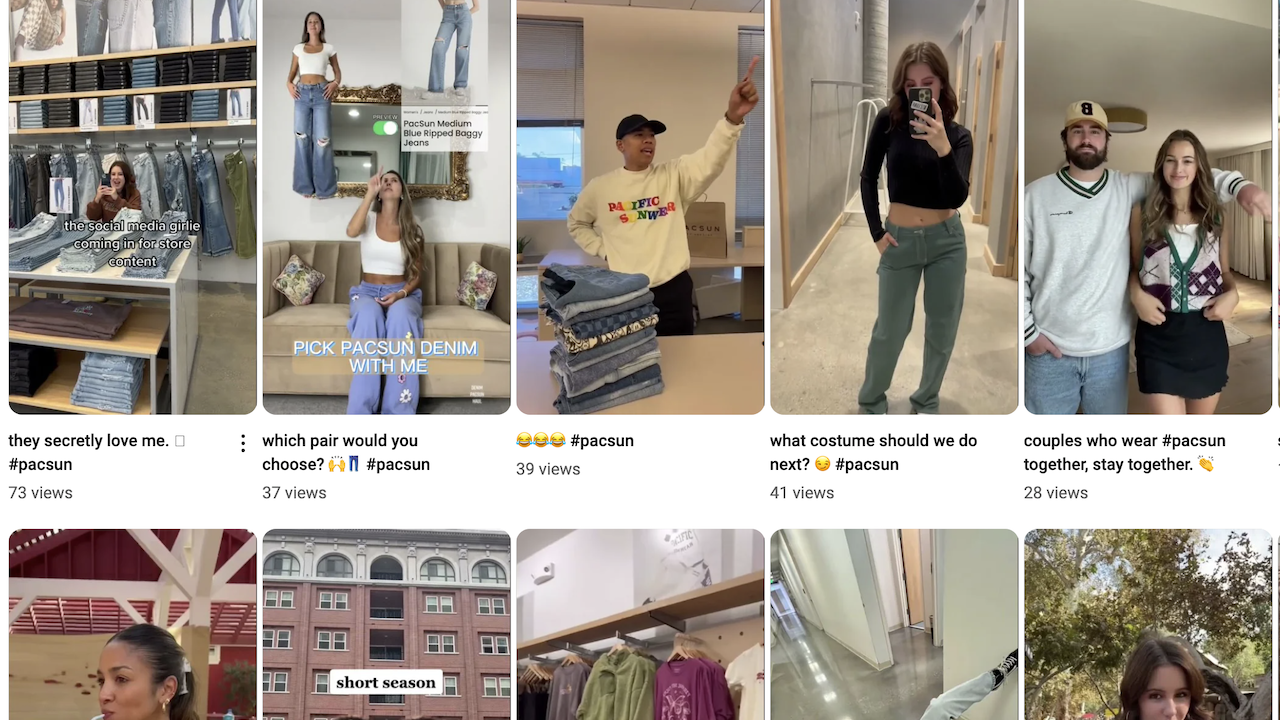Home Gardening Is Blooming During COVID-19 and Fashion Is Taking Notice – WWD
“You have to check the soil and make sure it’s loamy and smells good,” says designer Rozae Nichols, petting stalks of corn in the 3,500-square-foot garden behind her Flora Animalia clothing design studio in Los Angeles. “Part of the fun is saying, “Hey, how are you guys doing?’”
A 35-year veteran of the L.A. fashion scene, Nichols didn’t intend to get back into it after closing Clover Canyon. Her self-funded contemporary label had 80 employees at its height, showed at New York Fashion Week and rode the digital textile print craze until 2016.
“I had this dream for many years of having space to have a full-blown edible garden, to create this platonic place of conversation and community workshops about food justice, farm animal rights, vegan cooking, nutrition, all the things important to me,” says Nichols of her plan post-fashion.
She found it in 2017 on Washington Boulevard in Mid-City, a commercial building with a large backyard she made into a garden with passionfruit, persimmon and pomegranate trees, and raised plant beds for herbs and blueberries.
While working the soil, she realized a personal need for simple, stylish, organic clothing — in particular, an apron — to wear in the garden and beyond. Fast-forward to Flora Animalia, her new collection of cut-and-sewn pieces made in small batches, and mostly GOTS-certified organic fabrics. In addition to great-looking, Italian recycled dark denim half, full and cross-back aprons, the line is comprised of “perennial classics” mixing sturdy, vintage-inspired workwear and soft, unstructured femininity.
Flora Animalia by Rozae Nichols.
Courtesy
“Gardening is the most elemental thing anyone can do, I think that’s why people are doing it,” says Nichols of the collective stop-and-smell-the-roses moment. “It’s therapeutic and it’s so rewarding when you can feed yourself.”
“Gardening” searches spiked higher this pandemic spring and summer than in the previous five years, according to Google Trends. And Nichols is not the only designer feeling the call of the outdoors.
In addition to bowls, tea pots and prayer beads, L.A. jewelry designer Sonia Boyajian has also pivoted to making porcelain seedling tags, inspired by her work in her garden. “When quarantine hit, I said, ‘Who needs jewelry; what people need are things that will comfort them and serve a purpose but that they will enjoy when things are uncertain and unstable.”
Sonia Boyajian seedling tags.
Courtesy of Sonia B
Stussy’s just-released Birkenstock collaboration features imagery of the classic “Boston” clog in corduroy being worn by a model wielding hedge shears, and the must-have, at-home shoe for fall is shaping up to be a lug-soled Wellington from Bottega Veneta, Prada, Dior, Ganni or the dozens of other labels doing a version.
Also well-suited for the casual quarantine lifestyle, Flora Animalia features pajama pants, utility vests, work coats, peasant tops and scout shorts cut generously for unisex fits, and with selvedge details or multiple pockets for tools. There are also tent dresses in Belgian linen with hems that fold to create a “harvest” pocket envelope, or cotton lawn with handprinted drawings of herbs. Prices start at $250 at FloraAnimalia.com.
Nichols is donating a portion of proceeds to Mercy for Animals and Sea Shepherd Conservation Society, and production will be limited. “I am not going back to the way things were,” she says, referring to the old days when she’d release a 150-piece collection every few weeks. “I’ve been feeling the excess my entire career.”
Once the pandemic is under control, the garden will be more central to the Flora Animalia world, hosting events and workshops. “I don’t want to be a gentrifier who takes and doesn’t give,” says the designer, who shares her fruits and vegetables with the taqueria next door, and enlisted children of her neighbors to model in her look book.
Details at Dior’s fall 2020 show.
Aitor Rosas Sune/WWD
Gardening has actually been in the sartorial air for a couple of seasons. During the spring 2020 men’s runway collections in Europe, Silvia Venturini Fendi’s show was a stroll through the Villa Reale gardens, complete with a bag shaped like a watering can. At Louis Vuitton, Virgil Abloh sent out floral-bedecked harnesses, utility overalls and gardening gloves.
The model who closed Abloh’s show was Delfin Finley, an L.A. artist and son of Ron Finley, the urban gardening pioneer whose headquarters is about a mile away from Nichols’ — and who has his own interest in fashion.
“He’s the godfather of all of this,” Nichols says of the motivational figure who founded the nonprofit Ron Finley Project to encourage people to grow their own not as a hobby, but to transform food deserts into oases for communities in need.
Known as the “gangsta gardener” (“Drugs, robbing — that’s not gangsta. Building community — that’s gangsta. I’m changing the vernacular,” he’s said), Finley started planting fresh produce in South Central L.A.’s neglected parkways back in 2010, and has fought the city of L.A. to change laws allowing the public land to be used for urban farming. The subject of a 2015 documentary executive produced by John Legend, “Can You Dig This,” Finley has a TED talk that’s been viewed more than 3 million times, and one of the most popular MasterClasses, “Ron Finley Teaches Gardening.”
In the Eighties and Nineties, Finley had a successful L.A. fashion label — Drop Dead Collection — of tailored woven suits and denim that was stocked in major department stores and worn by Robert Horry and other L.A. Lakers and celebs.
“Where does fabric come from? Polyester comes from guano. Where do fibers come from? The soil. I tell people, if you wear clothes, buy food and eat, you are in the agriculture business,” Finley says of the similarities between gardening and fashion, which he left after the 2008 recession, explaining that he faced both racism and reverse sexism in his effort to build his business to the next level.
But now, he’s ready to plant a new seed, with a four-piece capsule collection launching in September with L.A.-based label Everybody World, including customized 100 percent recycled cotton basics, a cotton tote with lots of pockets for gardening, and one original design.
Ron Finley
Courtesy
The graphics are being designed by another of his three sons, artist Kohshin Finley. All proceeds will be donated to the Ron Finley Project. The original piece will be a hybrid of two designs from his past life. “I’ve seen a range of samples from the collection and it was so far ahead of its time…things that would hang next to Eckhaus Latta, Telfar and Barragan today,” said Everybody World creative director Iris Alonzo.
”We’re very excited to be tapping into this archive, but especially grateful to get to spend time in his garden and get to know the man behind it all,” she says of the capsule bowing in mid- to late September. “He’s a real inspiration on many levels.”
Prior to gardening, “tailoring taught me patience,” Finley says, adding that he is also interested in doing some serious clothes again, perhaps using a regenerative model. “This s–t isn’t about the money, it’s about how can we change this planet,” he says.
When it comes to fashion, he doesn’t follow it like he used to, and on the green thumb trend, he’s got mixed feelings: Finnish brand Fiskars is doing it right, but a recent Adidas gardening pack “looked like clown clothes.”
He did travel to Paris to see his son walk the runway last year, and has nothing but praise for Abloh’s fabrications, styling and details. So if Louis Vuitton asked Finley to do a regenerative fashion collection, would he? “In a heartbeat,” he says.
Delfin Finley walks the Louis Vuitton men’s spring 2020 show.
Giovanni Giannoni/WWD





